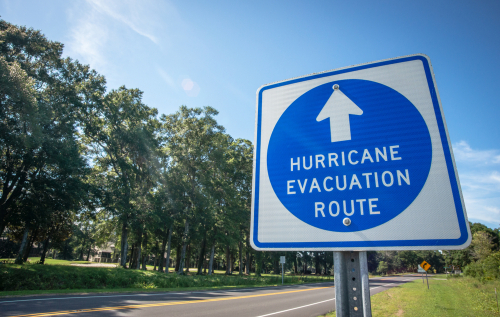Hurricane Season Has Arrived. Are You Prepared to Protect Your Travel Plans? (Post from the UStiA)

Reposted with permission from the U.S. Travel Insurance Association
(ROCKVILLE, MARYLAND) June 29, 2021 – With COVID restrictions lifting, vacations this year will signal a return to making travel plans and new memories with family and friends. With the arrival of this year’s hurricane season and an active hurricane season forecasted, consumers are reminded to protect their investment in the event a named storm threatens their plans. The US Travel Insurance Association (UStiA) says it’s important for consumers to know when, why, and how to activate their travel insurance benefits.
“Consumers don’t have to avoid travel during hurricane season, but they do need to be prepared for the unexpected,” said Megan Cruz, UStiA executive director. “While a disruptive weather event might be unforeseen at the time the consumer makes travel plans, some advance planning can make a major difference in the event a trip is delayed, canceled, or interrupted by a hurricane.”
According to Cruz, if the potential for a hurricane is looming, travelers should keep five things in mind:
Read your policy before you travel. Understanding the coverage and services that are available to you is critical, including trip cancellation and trip interruption insurance benefits.
Contact your travel suppliers—like your hotel and airline—before you cancel your trip. They may allow you to change your trip without penalty, which is trending as a result of the impact on travel due to COVID. Most major airlines are currently waiving change fees for events such as hurricanes, and many cruise lines are offering refunds and future cruise credits. Prior to filing your travel insurance claim, check with your travel suppliers to determine if any penalties or fees will be waived. If you’re able to change the dates of your trip, your travel insurance provider may also change the dates of your policy to coincide with your new dates of travel.
Include all pertinent documentation if you need to file a claim. Provide your invoices and receipts, proof of payment (such as credit card statements), proof of any refunds already received, communication with travel suppliers, etc.—everything you have to substantiate your loss.
Consider filing your claim online. Many travel insurance providers can become inundated with phone calls immediately before, during, and after a hurricane. Filing online can save you time and may expedite the processing of your claim.
Be sure to take your travel insurance information with you on your trip. Make sure you pack your policy number and information on how to reach your provider for assistance and to activate coverage and services in case your trip is interrupted.
“The timing of filing a claim is important. Travelers should delay cancelling a trip before the cancellation is covered,” Cruz said. “For example, cancellation before a hurricane warning is given, before a hurricane is named, or before the actual hurricane hits might not be covered. Make sure to read the terms of your specific policy or call your travel insurance provider for clarification.”
About UStiA
UStiA is a nonprofit association of insurance carriers and allied businesses involved in the development, administration, and marketing of travel insurance and assistance services. UStiA promotes fairness, integrity, and a commitment to excellence in the travel insurance industry, with a mission to educate the public on travel insurance while maintaining high industry standards. For more information on UStiA and travel insurance, visit www.ustia.org.
USI Affinity Travel Insurance Services is a proud member of UStiA.






